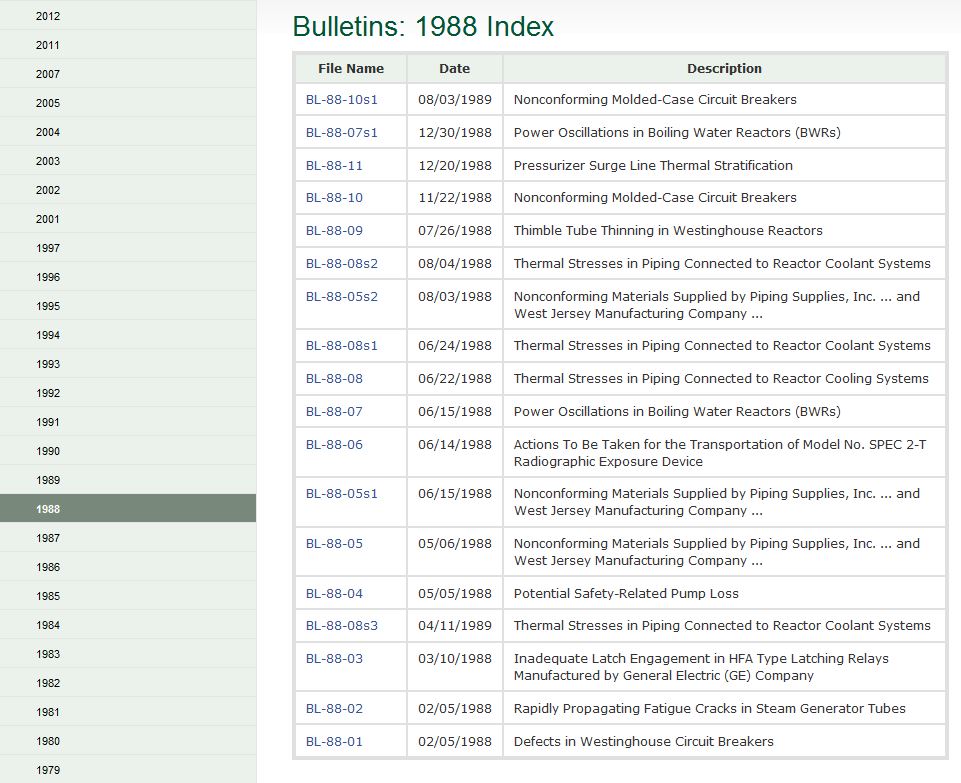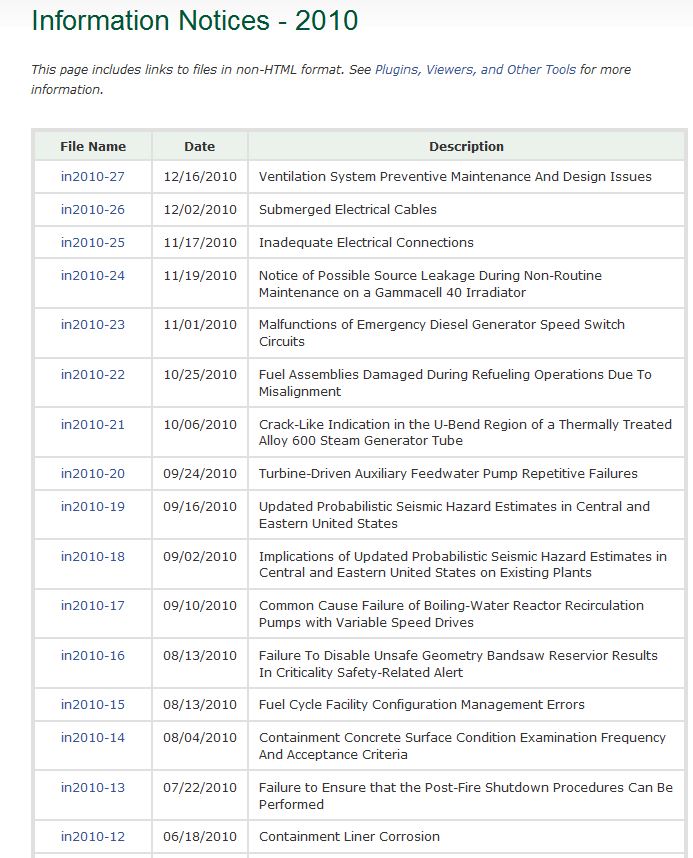This post complements NEAT #9 about the NRC’s Operating Experience efforts. This post covers the agency’s generic communications program.
Generic communications are not missives sent by the NRC addressed to “Occupant” or “Current Resident.” Instead, they “are the NRC’s primary method of communicating a common need for information or resolution approach regarding an issue, or communicating NRC’s position and information on issues pertaining to a matter of regulatory interest.” The NRC currently has four types of generic communications:
- Bulletins containing urgent requests for information or actions
- Generic Letters containing less urgent requests for information or actions
- Regulatory Issue Summaries communicating NRC’s positions on technical and policy issues or soliciting voluntary participation in pilot efforts that “road test” new and revised regulatory practices
- Information Notices that convey Operating Experience lessons
While the NRC will send applicable generic communications to its licensees as appropriate, anyone can sign up to receive these communications by email. Yes, even you can do so. Anyone can subscribe by sending an email to [email protected] with the phrase “subscribe gc-nrr (first and last name)” in the message portion of the email. And anyone can later opt out of the distributions by sending an email to [email protected] with the phrase “unsubscribe gc-nrr (first and last name)” in the message portion.
The NRC is always evaluating issues for potential handling via generic communications. A periodic report lists the issues currently under consideration, such as a possible Information Notice about Refueling Water Storage Tanks.
Individual types of generic communications can be selected to view the correspondence issued by the NRC each year going back to the late 1970s. For example, the Bulletins webpage tracks back to 1971.
For example, the Bulletins index for 1988 lists 18 issuances: 11 bulletins and a total of 7 supplements to bulletins. Bulletins convey urgent requests for information and actions. It’s not uncommon for bulletins to supplement later, as shown here, to require actions be taken following NRC’s assessment of information provided per request.
The NRC uses its generic communications program for all its licensees, not just those owning and operating nuclear power reactors. For example, the NRC sent Information Notices 2010-15 and 2010-16 to owners of fuel cycle facilities (i.e., those engaged in the mining, milling, enrichment, and manufacture of nuclear fuel). And the NRC sent Information Notice 2010-24 to its licensees at medical institutions, owners of self-shielded irradiators up to 10,000 curies, and all State Liason Officers.
When nuclear plant owners receive generic communications from the NRC, these documents are reviewed for applicability at individual sites. As appropriate, applicable generic communications are formally incorporated into training programs and plant procedures.
Bottom Line
The NRC uses its generic communications program to supplement its Operating Experience efforts. The generic communications program has two roles: awareness and action. Information Notices and Regulatory Issue Summaries make NRC’s licensees aware of operating experience. Bulletins and Generic Letters move beyond awareness by requesting NRC’s licensee take actions regarding operating experience. The generic communications program specifically and the NRC’s Operating Experience efforts more broadly make positive contributions to nuclear safety.
The NRC could expand the value of its generic communications program by using it for human performance issues as well as for equipment performance problems. The overwhelming majority of generic communications involve defective components and components improperly installed, maintained, or operated. Very few cover human performance problems. Perhaps this disparity is due to the fact that humans write the generic communications. If equipment handled this task, there might be many human performance issues covered and fewer equipment problems. Whatever the reason, the NRC’s generic communications program would reap greater benefit if it more accurately covered the full spectrum of operating experience rather than merely a subset.
The UCS Nuclear Energy Activist Toolkit (NEAT) is a series of post intended to help citizens understand nuclear technology and the Nuclear Regulatory Commission’s processes for overseeing nuclear plant safety.


